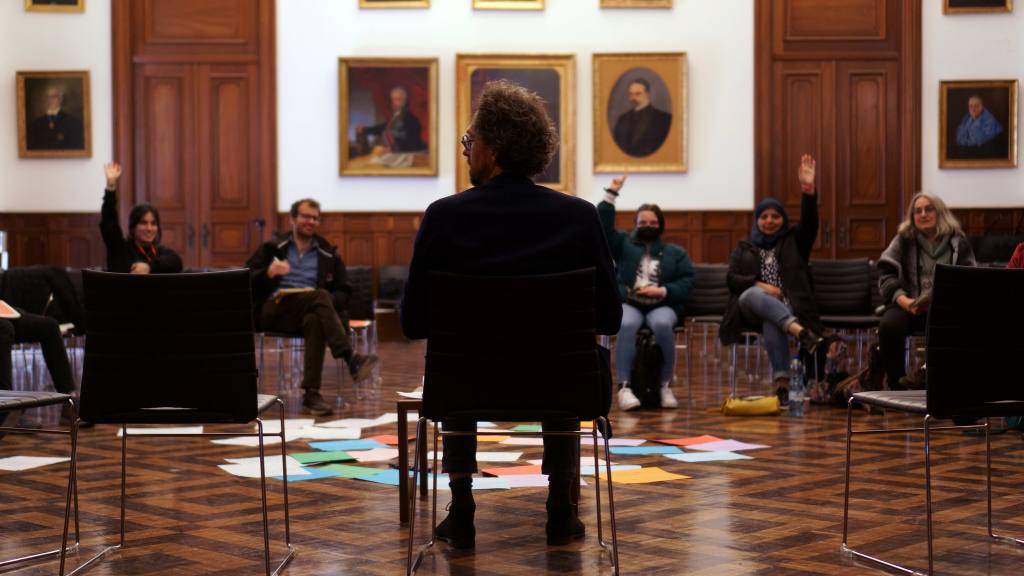
The Conference on the Future of Europe has ended, but the hard work has only just begun. A significant number of the 49 Conference proposals and 326 related measures require treaty change to be fully implemented. In order to do justice to these proposals, the European Parliament is currently preparing an official proposal for amendment of the treaties, calling for a Convention to be convened. However, as history has shown, starting a Convention is one endeavour, making it a success is another. In order to take into account the lessons learned of the past and to maximise the chances of success, we outline four key ingredients for a successful EU Convention.
1. A broad and open mandate
The impetus for the Convention comes from the Conference on the Future of Europe, and the European Parliament proposals for treaty amendments as presented in response to the Conference outcomes.The Convention should discuss these proposals, but it should not be restricted in discussing and putting forward other proposals as well. The Convention should be free to propose an EU Constitution to replace the currently existing treaties, if it deems this appropriate, as a follow-up on recommendation 35 of European Citizens’ Panel 2 and Conference proposal 39.7.
2. Broad visibility and public debate in the Member States
National, regional and local authorities have a key role to play in engaging people and facilitating public debate at all political levels in the Member States. This can be done in a variety of ways: for example, public authorities can organise mini-publics, town hall meetings and debates to feed into the Convention and provide resources for civil society organisations to organise similar engagement activities.
3. An inclusive and participatory form of agenda-setting
While article 48(3) of the Treaty on European Union (TEU) stipulates that the Convention is to be composed of “representatives of the national Parliaments, of the Heads of State or Government of the Member States, of the European Parliament and of the Commission”, the Convention must work in the most participatory and inclusive manner possible. In order to achieve this, the Convention should be complemented, among others, with the following participation forums and instruments:
- EU People’s Panels (EPPs) that address specific questions formulated by the Convention. The panels should be composed by means of stratified random selection, involving both EU citizens and other people living in the EU, using quota to ensure the adequate representation of marginalised groups. The recommendations developed by the panels should be presented to and discussed with Convention members. In case the Convention decides to reject certain recommendations, it should provide adequate justification.
- An EU Popular Initiative Right, enabling people living in the EU to develop proposals for the Convention and to collect signatures in order to get their proposals on the agenda of the Convention. If a certain threshold of signatures is reached within a certain timeframe, the Convention is obliged to invite the initiative organisers for a hearing and a debate, and to take a decision on whether or not the proposal is taken on board. In case the Convention decides to reject the proposal, it should provide adequate justification.
- The Digital Platform set up for the Conference should function as the central hub of the Convention and should enable the public to access all Convention-related documents, to share ideas and give feedback. Accessibility should be improved and greater public awareness should be generated.
In the design and implementation of participation instruments and the overall participation strategy, special attention should be placed on including groups that are typically underrepresented in EU politics, including by means of dedicated resources.
4. Popular ownership of the Convention outcomes
In order to ensure that the outcome of the Convention can count on broad political and popular support, thereby maximising the chances of a smooth and successful ratification process, the political agreement developed by the Convention should be presented for approval during an EU-wide vote. If more than 50% of all the voters support the proposal by the Convention, and if there is simple majority support in at least four-fifths of the Member States, the vote should count as successful and the proposal must be forwarded to the intergovernmental conference and then to the Member States for ratification in accordance with their respective constitutional requirements. If this double support threshold is not reached, the Convention should have a maximum of six months to improve the proposal, after which people are once again invited to vote on it.


